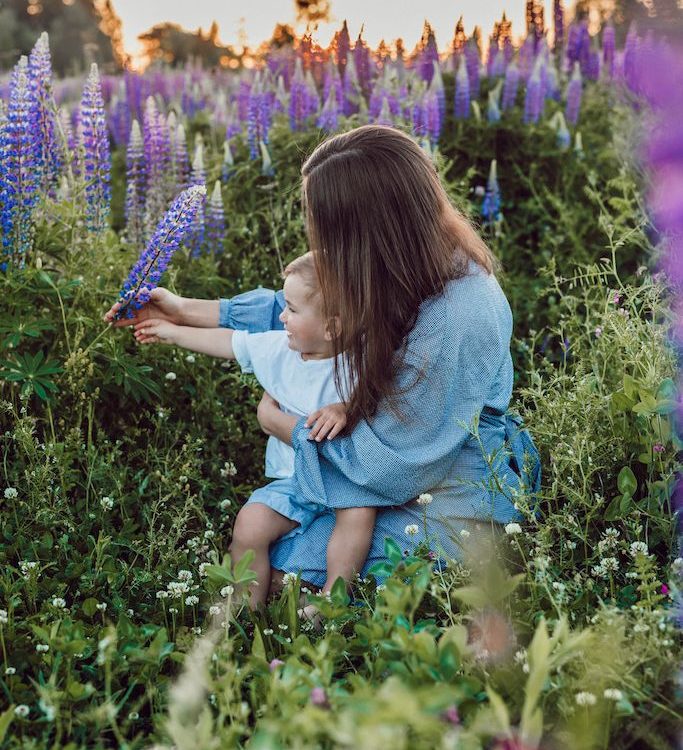Modern media can paint a filtered view of what being a new mum is like (insert picture-perfect Instagram post of a mother smiling down at her baby with the caption “#blessed”). When you set yourself up for a particular expectation, it can make the eventual reality hard to cope with. If, like me, you end up in the midst of a chaotic postnatal aftermath, know that you are not alone and it does get better.
To begin with, I found looking after a baby really hard. I’d read the books, I’d taken the classes, but nothing had adequately prepared me for the complex busyness of life with a tiny human, especially in that fourth trimester. I found myself, not tranquilly gazing into my baby’s eyes, but battling to master doing a million other things.
These included trying everything to be able to breastfeed, spending hours rocking him to sleep, navigating the ridiculously convoluted world of bottle-feeding, and desperately pumping my own milk at every available opportunity, after being constantly reminded that “breast is best” (we will debate this another day).
Free moments were spent washing reflux-stained clothes, sterilising bottles, running out to grab things I needed, cleaning the house, trying to feed or shower myself – all of this interrupted by a baby’s cries because all they really want is your undivided attention. I shared responsibilities with my husband, of course, but there was (there still is) so much to do and paid paternity leave only lasted a shockingly short two weeks.
Lack of time to focus on my own surgical recovery in all of the madness just heightened my emotions and resulted in me experiencing trippy levels of exhaustion. The good moments felt really good but the bad moments felt really bad. I was overwhelmed, frustrated and consequently felt guilty for thinking any negative emotions towards this wonderful gift that I had been so lucky to receive. I berated myself for complaining, for not coping better, for constantly comparing myself to other mums. Deep down, it all came from a place of just wanting to do the best for someone I loved so much yet couldn’t communicate with yet.
Some days, even the simplest tasks felt impossible. I cried over the things I felt I’d never be able to do again, like lie-in past 6am or eat a meal from start to finish. As well as trying to look after my son and physically recover myself, I wanted time to quietly say goodbye to those parts of me that I was letting go of.
My husband had an amazing natural instinct to take control, constantly urging me to rest. But the pressure we put on ourselves as mums means that it is ironically hard to enjoy time out, it is impossible to “sleep when they sleep”. There is too much to do and we are hardwired to want to be on standby for them. We desperately yearn for a break but when we get one, we miss them so much it hurts.
Eight months later and we’ve both grown up, worked each other out, and finally adjusted. We’ve conquered a hell of a lot and settled into a manageable routine as a family, one that allows time for adults to finish their own meals. In the end, admitting difficulties, seeking support and giving myself real time to settle in, made me eventually feel able to sacrifice even more. The journey into parenthood is a complicated one and I don’t believe that anyone can master it all overnight.
There are always going to be bad days, I will always cry about being awake at 5am. The road ahead is foreseeably bumpy and full of new challenges (like weaning, teething and potty training), but now, fully recovered and increasingly comfortable in my new job, I feel more equipped to tackle things, more ready to enjoy the magical moments. And it’s true what they say, you forget the struggle and just remember the glorious reward. Like a runner who puts herself through gruelling marathons, as soon as you’re healed you fantasise about doing it all again.
As I sit writing this, mini-me rolls over on the carpet, grins at the sight of his mum, and I am reminded of the reason why I was scared of admitting that this has been tough. Not because I care what people think, but because my greatest fear is that my older son will read words I have written and think he caused his mother something other than complete happiness. I don’t know how to cope with that.
Yet, when I look into my baby’s eyes and notice that he waits for my feedback, I suddenly realise why I will never hold back about talking openly about this rollercoaster ride into being a mother. Because the truth is that the world we live in doesn’t make us feel #blessed all of the time. And the world I want him to live in acknowledges that and encourages us to talk honestly about our feelings and fears.
I want him to know that finding something hard is not a sign of weakness or failure, and there is no picture-perfect expectation of who he should become or how he should react to things. This entire struggle has influenced the parent I want to be for him – one who urges him to talk openly about his worries, one who allows him to feel emotional and one who unashamedly embraces her imperfections and continually encourages him to do the same.









